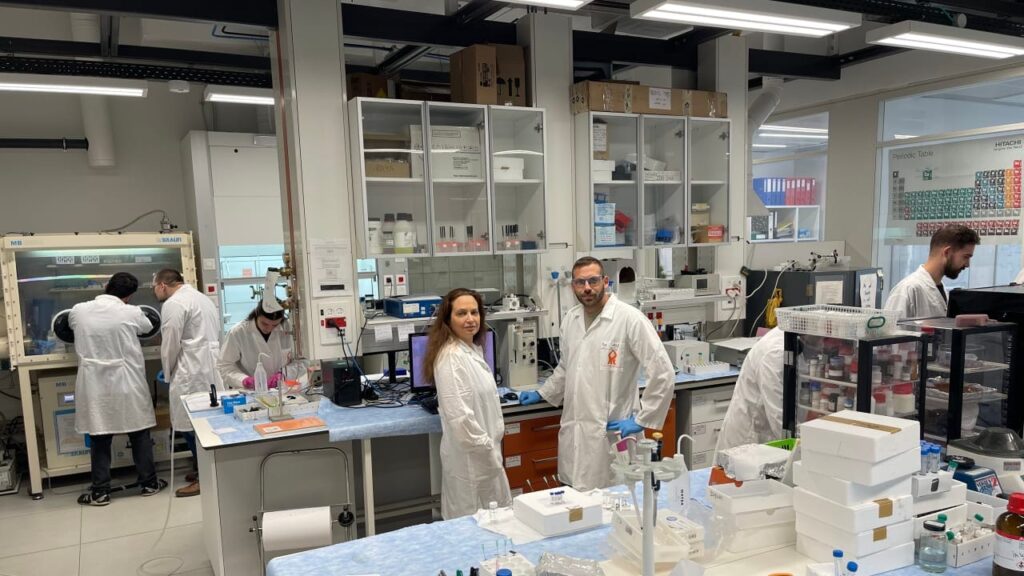
Organic Agriculture Can Pollute Groundwater
Organic Agriculture Can Pollute Groundwater
February 15, 2014
BEER-SHEVA, Israel, February 15, 2014 — Researchers from Ben-Gurion University of the Negev (BGU), using specialized monitoring technology, have determined that intensive organic agriculture can cause significant pollution from nitrate leaching into groundwater.
Public demand has led to the rapid development of organic farming in recent years to provide healthy food products that are free of chemical additives and to reduce industrial and groundwater pollution worldwide.
But, according to the paper published in the Hydrology and Earth System Sciences journal, intensive organic matter using composted manure prior to planting resulted in significantly higher groundwater pollution rates compared with liquid fertilization techniques through drip irrigation.
The study used Vadose Zone Monitoring System technology developed at BGU and commercialized by Sensoil Innovations Ltd. to compare the water quality across the entire unsaturated zone under organic and conventional greenhouses in Israel.
The system is designed to monitor liquid, gas and soil hydraulic properties and allows real time continuous tracking of water in deep sections of the vadose zone, from land surface to groundwater. It is currently being used in more than 25 commercial and research sites in the United States, Israel, Spain, Namibia, and South Africa.
While groundwater pollution is usually attributed to a large array of chemicals, high nitrate concentration in aquifer water is the main cause for drinking-water well shutdowns.
The down leaching of nitrates under intensive organic farming is due to nutrient release from the compost to the soil during the early stages of the growing season. In this stage, nutrient uptake capacity of the young plants is very low and down leaching of nitrates to the deeper parts of the vadose zone and groundwater is unavoidable.
The study, funded by the Israel Water Authority, was conducted in commercial greenhouses on the Southern part of the coastal aquifer in Israel.
The BGU researchers included Dr. Ofer Dahan and Dr. Naftali Lazarovitch of the Jacob Blaustein Institutes for Desert Research and Efrat E. Russak of the Department of Geological and Environmental Sciences. Dr. Daniel Kurtzman, of The Volcani Institute of Water Research, also participated.
ABOUT AMERICANS FOR BEN-GURION UNIVERSITY
By supporting a world-class academic institution that not only nurtures the Negev, but also shares its expertise locally and globally, Americans for Ben-Gurion University engages a community of Americans who are committed to improving the world. David Ben-Gurion envisioned that Israel’s future would be forged in the Negev. The cutting-edge research carried out at Ben-Gurion University drives that vision by sustaining a desert Silicon Valley, with the “Stanford of the Negev” at its center. The Americans for Ben-Gurion University movement supports a 21st century unifying vision for Israel by rallying around BGU’s remarkable work and role as an apolitical beacon of light in the Negev desert.
About Ben-Gurion University of the Negev
Ben-Gurion University of the Negev embraces the endless potential we have as individuals and as a commonality to adapt and to thrive in changing environments. Inspired by our location in the desert, we aim to discover, to create, and to develop solutions to dynamic challenges, to pose questions that have yet to be asked, and to push beyond the boundaries of the commonly accepted and possible.
We are proud to be a central force for inclusion, diversity and innovation in Israel, and we strive to extend the Negev’s potential and our entrepreneurial spirit throughout the world. For example, the multi-disciplinary School for Sustainability and Climate Change at BGU leverages over 50 years of expertise on living and thriving in the desert into scalable solutions for people everywhere.
BGU at a glance:
20,000 students | 800 senior faculty | 3 campuses | 6 faculties: humanities & social sciences, health sciences, engineering sciences, natural sciences, business & management, and desert research.
For all press inquiries, please contact:
James Fattal, J Cubed Communications
516.289.1496



